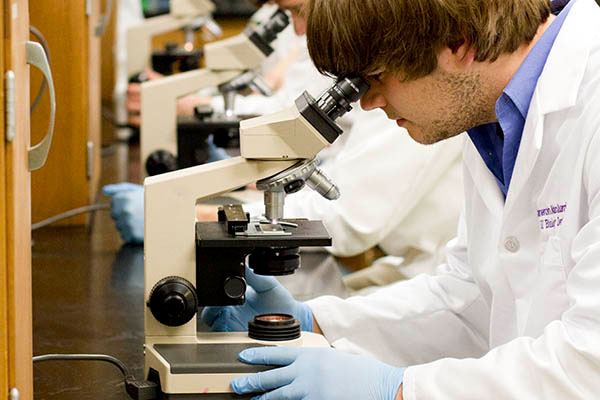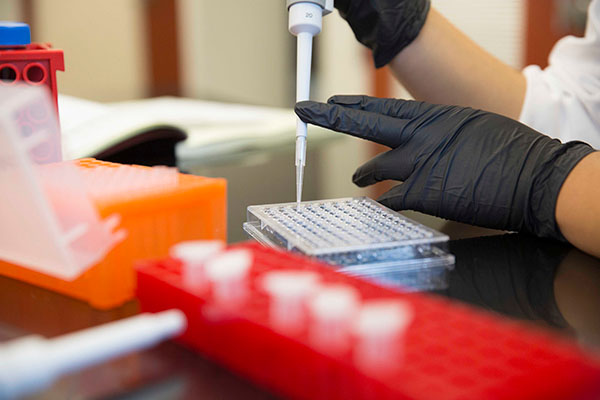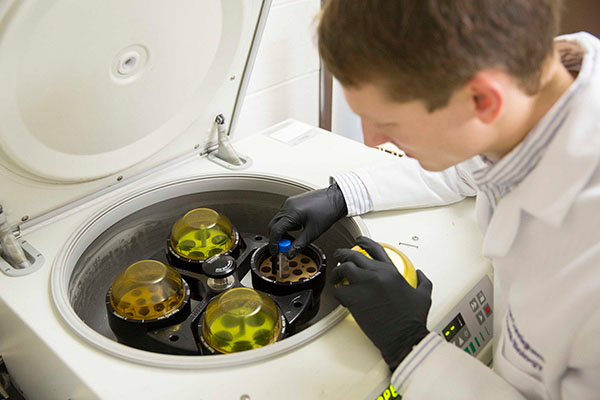Program Overview
You’ve always had a passion for animals and now you have the opportunity to build a career around that. You already understand the great responsibility it is to care for animals, so let us provide you with the tools to live this out.
Our enthusiastic faculty are committed to helping you establish the career you desire. You’ll gain an extensive foundation in the sciences and math. Not only will your professors provide you with the academic knowledge to successfully further your education but will serve as mentors and advocates. They’ll assist you in getting real-time experience with practicing professionals in your field, even before you enter veterinary school. Plus, by registering with our Health Professions Advisory Committee (HPAC) office, you'll have the opportunity to be nominated for prestigious Ward Society scholarships and research fellowships, which will look great on your veterinary school applications.
Take your learning into professional school and eventually into a variety of settings - private clinics, hospitals, laboratories and field experiences.
Courses
Our office can assist you in determining which courses you need to satisfy professional school requirements. Looking at the website for the professional program you're interested in is also helpful in learning more about the additional courses or requirements of the program.
Course requirements can vary from one health professional program to another. Generally, these are the courses required by most veterinary schools:
General Biology: Eight semester hours with labs
General Chemistry: Eight semester hours with labs
Organic Chemistry: Eight semester hours with labs
Physics: Eight semester hours with lab(s)
Biochemistry: Four semester hours
Cell Biology: Four semester hours
Genetics: Four semester hours
Math: Usually through Calculus I
English: Six semester hours
Our Faculty
No matter what major you choose, we're ready to help you on your path to becoming a veterinary medicine.
Career Paths
Veterinarians
Veterinarians care for the health of animals and work to improve public health. They diagnose, treat, and research medical conditions and diseases of pets, livestock, and other animals.
Veterinary Assistants and Laboratory Animal Caretakers
Veterinary assistants and laboratory animal caretakers care for animals by performing routine tasks under the supervision of scientists, veterinarians, and veterinary technologists and technicians.
Veterinary Technologists and Technicians
Veterinary technologists and technicians perform medical tests under the supervision of a licensed veterinarian to assist in diagnosing the injuries and illnesses of animals.







